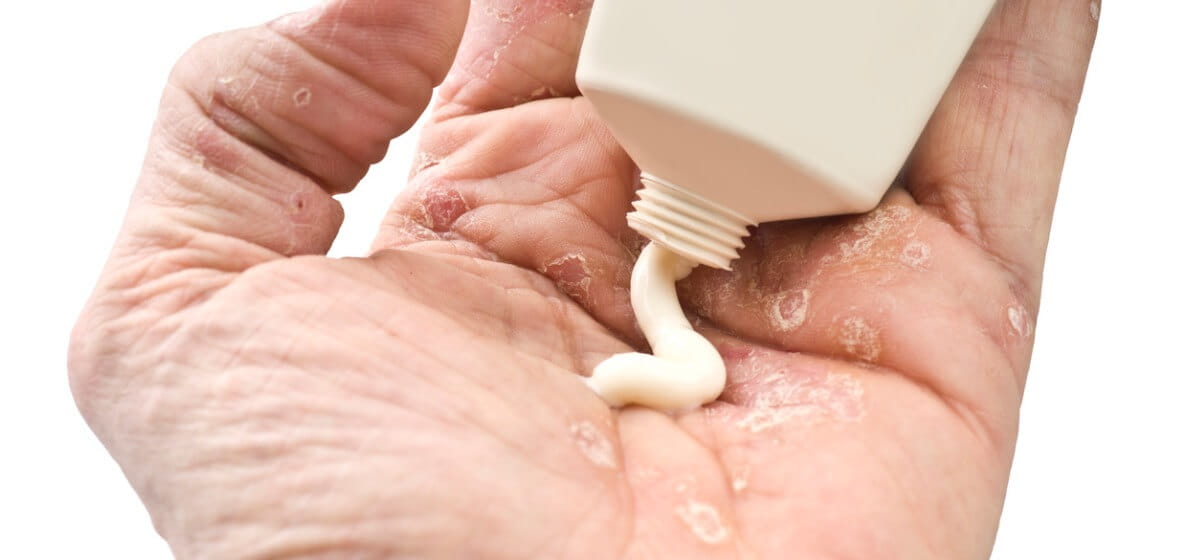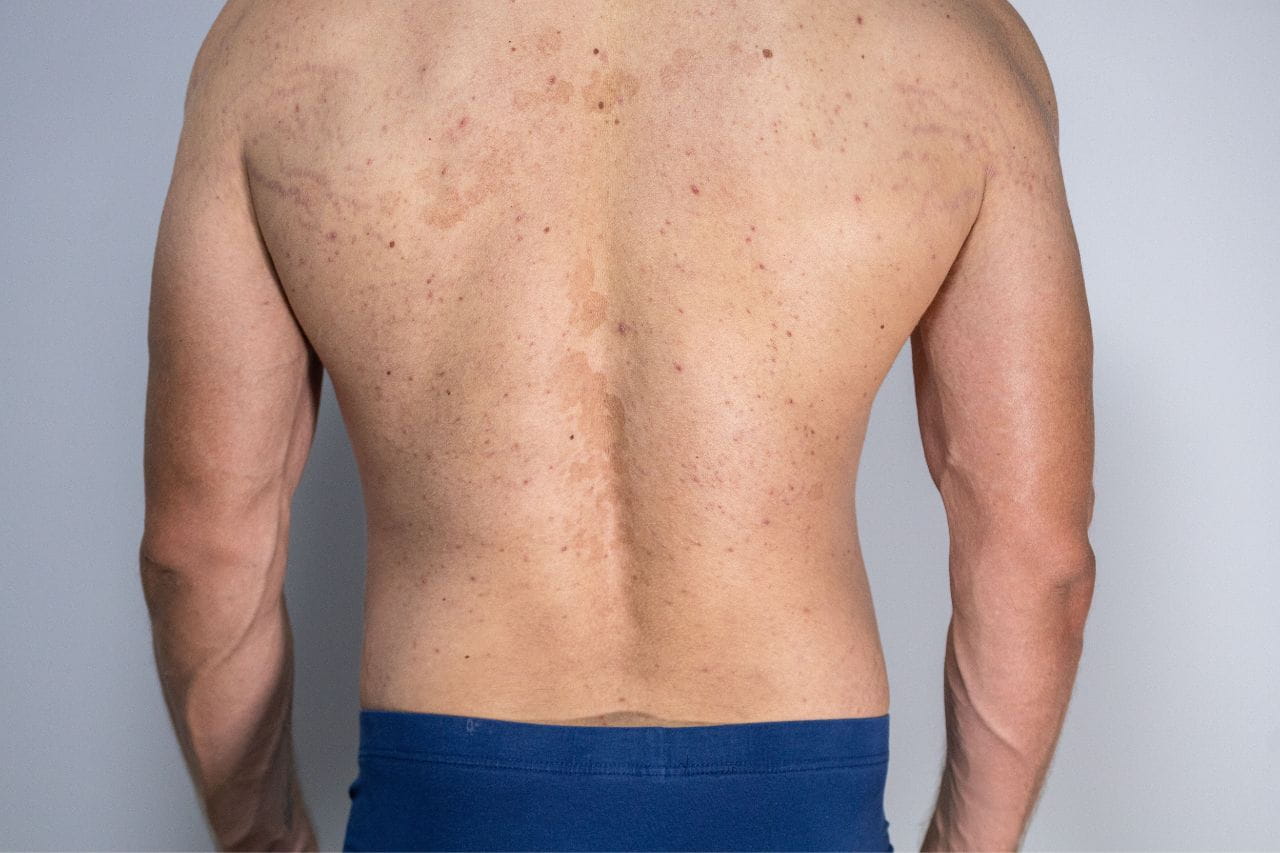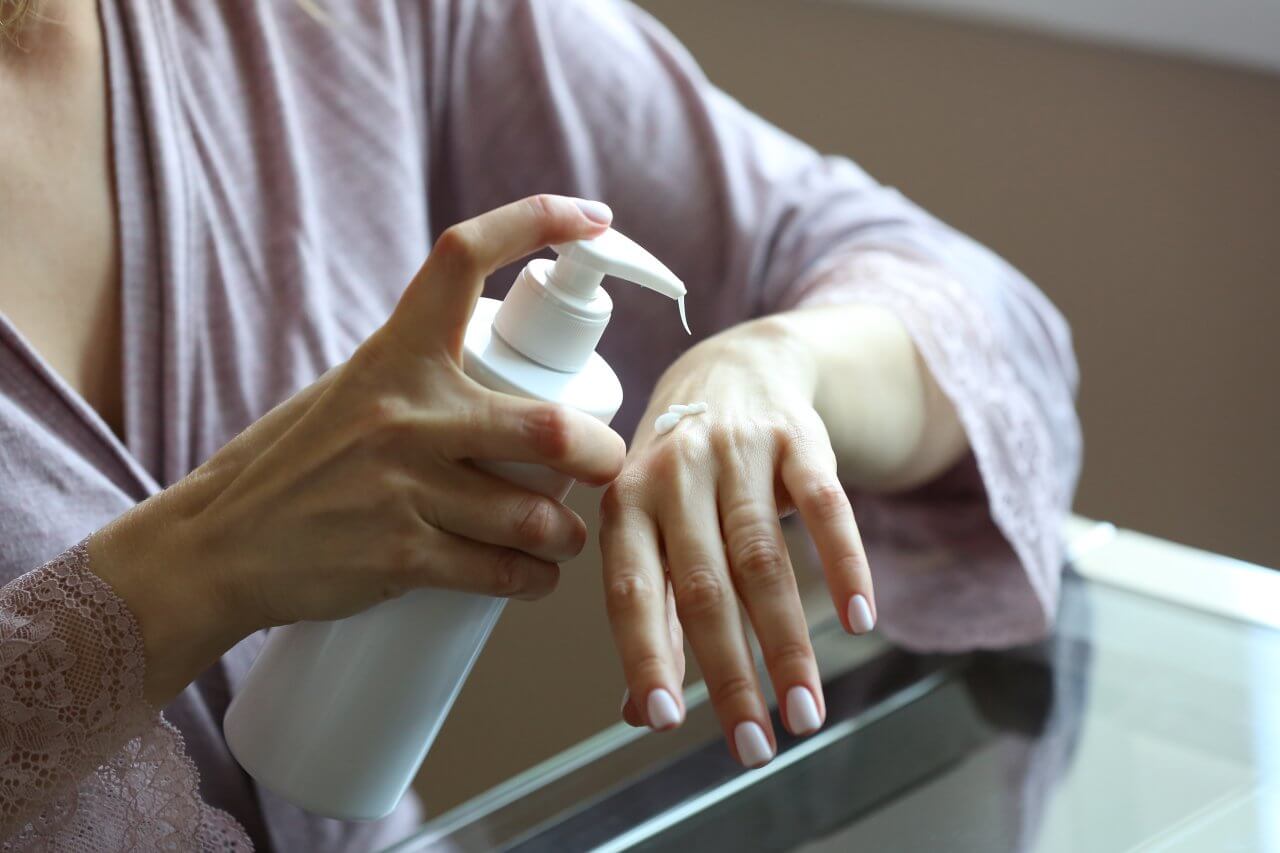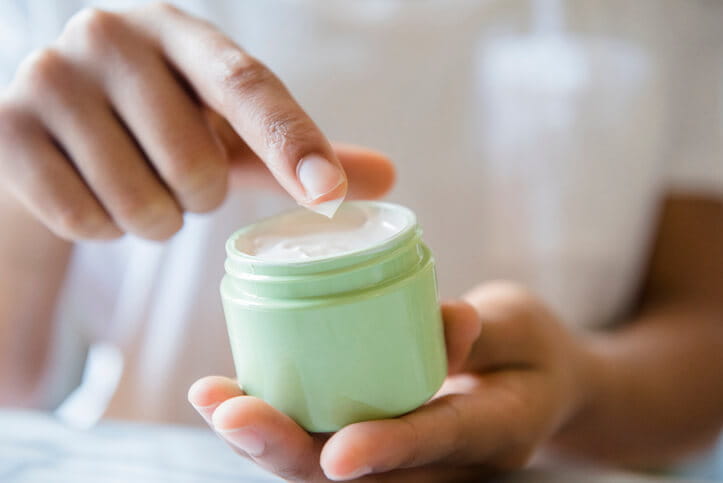Psoriasis: Causes, Self-Care and a New Treatment

Psoriasis is a chronic, incurable skin condition that produces thick, scaly areas of skin known as plaques. It is not contagious, and may flare up and then decrease or go into remission that can be brief or last for years.
Psoriasis is the result of accelerated skin cell production. Normally, skin cells develop below the surface, rise slowly and eventually fall off. This process generally takes about a month. With this condition, cells are produced too rapidly and build up on the surface. Psoriasis can produce anything from a few small patches to large areas of involved skin.
What are the Symptoms of Psoriasis?
Psoriasis can affect skin anywhere on the body and manifests differently in each person. Common symptoms include:
● Thick, silvery scales over red patch of skin
● Dry, cracked skin that sometimes bleeds
● Fingernails or toenails that are thick, ridged or pitted
● Itching, burning or soreness of affected skin
● Stiff and swollen joints
What Causes Psoriasis?
The exact cause of psoriasis is not known, but it is believed to be a problem with cells in the immune system called T cells and neutrophils. In people who have psoriasis, the T cells act on healthy skin cells as if to heal a wound or defend against viruses or bacteria. The T cells also cause an overproduction of healthy skin cells, T cells and other white blood cells.
A number of triggers can start a psoriasis outbreak or make existing plaques worse, including:
● Injury to the skin like a scrape, cut, severe sunburn or bug bite
● Skin infections
● Excessive alcohol consumption
● Smoking
● Stress
● Certain medications
● Vitamin D deficiency
Family history, obesity, smoking, stress and infections are the biggest risk factors for psoriasis.
How Can I Manage My Psoriasis?
While your doctor can prescribe medication designed to control psoriasis, there are a number of things you can do on your own to help prevent or minimize outbreaks, including:
● Moisturize. Keeping the skin hydrated helps reduce redness and itching. You should avoid scented products and those containing alcohol, as they can dry and irritate the skin.
● Wash gently. Avoid actions that can dry out the skin such as taking long, hot showers or using harsh soaps. After bathing, pat your skin dry rather than rubbing it. Then, moisturize your skin promptly.
● Get some sun. A small amount of sun exposure may help reduce scaling and inflammation. Be sure to protect unaffected skin with sunscreen that has at least 30 SPF.
● Reduce your stress. While easier said than done, reducing your stress level can help control your psoriasis. Be sure to get plenty of sleep, exercise regularly and eat a healthy diet. Meditation and yoga may help you relax.
● Consume alcohol in moderation. Because excessive drinking can cause psoriasis to flare, no more than one drink a day for women and two for men is advised.
● Don’t smoke. Psoriasis is just one of the many health conditions caused or negatively impacted by smoking. Your doctor can help you quit.
Possible Psoriasis Treatment
On March 21, 2018, the U.S. Food and Drug Administration approved Ilumya (tildrakizumab-asmn) for adults with moderate-to-severe plaque psoriasis. This promising new treatment option is expected to be available for adults who are eligible for systemic therapy or phototherapy in summer 2018. Your doctor can talk with you about whether Ilumya is right for you.



